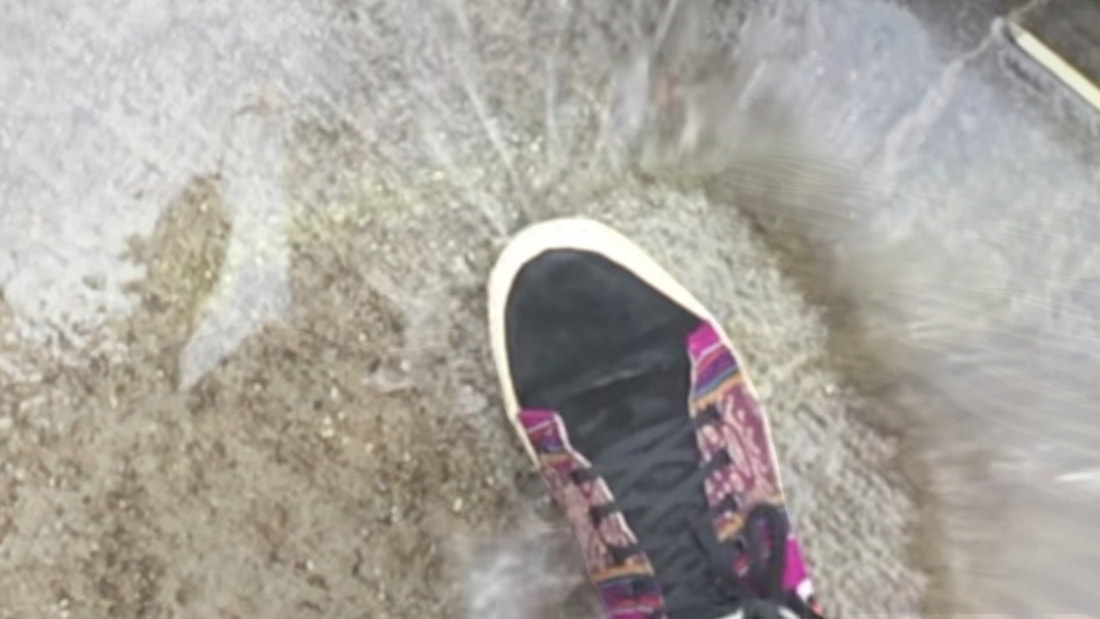|
If affective filmmaking as method can open feeling to thought through making, what questions does it make possible? What is its potential for future research? In this post I riff on this question, thinking with ‘what if’. What if affective filmmaking was trialled with a larger participant group?
With only two students in both the workshops conducted for my doctoral research, the process was contained and intimate. Each student had access to their own iPad and stabiliser grip for the duration of the workshops which encouraged individual rather than collaborative making. As a consequence each student chose to make their own video artefact. How would the method work if two or three students worked collaboratively with one iPad and stabiliser grip? Would video explorations of gendered experience be more multi-storied, less linear? How would this impact on the relay of felt experience? Practically speaking, would the workshop timeframe need to be extended so that each student could try out different filmmaking techniques and explore what they produced, and to allow time for discussion and negotiation between group members in the iterative making-reviewing-making process? What if the students shared their films with their school communities? At the end of the workshops we held a small screening with the coordinating teacher and support staff at each of the senior colleges. These screenings were an opportunity for the students to share their work in a safe space and gauge its impact on a small scale, and to share their intentions and reflect on the process in discussion with the group. What if students had the opportunity to share their films beyond the workshop setting… with their year group, with the whole school, with teachers and support staff, with parents and community members? Could the relay of felt experiences of gender through the student created films affect attitudes to effect policy change? How would the impact of the the films be gauged? Options to consider are a facilitated discussion with audiences after the screenings, a survey of audience attitudes and aspirations, and a call to direct action. For example, students in EJ Renold’s research with young people galvanised student voices that sparked changes to relationships education in Wales. What if the workshops could be run with high school students in NSW? As NSW high schools could not be accessed for my doctoral research, the in-person affective filmmaking workshops were only conducted in the ACT with senior college students. Focus groups conducted as part of the Gender Matters project* with recent high school leavers in NSW and senior secondary students in the ACT suggest that students’ experience of gender differs widely in these two neighbouring jurisdictions. Analysis of ACT and NSW education policy lends further weight to this position – see blog posts How does gender matter? and School uniform policy matterings. What if workshops were held with senior secondary students in non-school contexts such as youth and community groups in NSW? What would groups of students from different school contexts making collaboratively from gendered experience produce? How would gendered materialities of secondary school emerge without students being physically in school buildings for filming? Would the relay of student felt experiences multiply and complexify further? This brief exercise of thinking with what if, expands options and approaches for future research to explore how affective filmmaking might be used as an emergent research method with young people and its potential to make change. * This PhD research is attached to the Gender Matters: Changing Gender Equity Policies and Practices in Australian Secondary Schooling Australian Research Council Discovery grant (2019-2023) awarded to Susanne Gannon and Kerry Robinson with embedded PhD awarded to Prue Adams. PhD title: Affective filmmaking: An emergent making-thinking approach (method) to explore young people’s everyday experiences and understandings of gender in secondary schools.
0 Comments
Leave a Reply. |
BlogMy thinking about filmmaking as an affective, emergent mode of inquiry to explore experiences of gender in secondary school with young people through my doctoral research. Archives
December 2022
Categories
All
|
